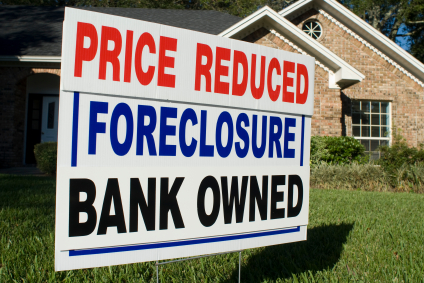Foreclosures
Foreclosure Prevention: |
 |
FORECLOSURE PREVENTION RESOURCES
If you are having difficulty paying your mortgage contact NeighborWorks® New Horizons. NeighborWorks® New Horizons, a non-profit organization, is a HUD approved housing counseling agency. Its foreclosure prevention counseling program provides FREE counseling services to home owners who are in danger of losing their homes. Their objective is to assist homeowners avoid foreclosure, stay in their homes and remain part of their community. NeighborWorks® New Horizons will work with homeowners to assess their immediate needs and look at options to prevent foreclosure.

Neighborworks has access to all of the programs listed below and many more. Contact Foreclosure Counselor Jose Santos by email at jsantos@nwnh.net or by phone at 800-270-7517 ext. 24 to set up a confidential interview to determine the foreclosure prevention program that's best for you.
NeighborWorks New Horizons is located at 235 Grand Avenue, New Haven, CT 06513 and has a branch office on 239 Williams Street, Suite 2-2, in New London, CT 06320.
A. FEDERAL PROGRAMS
You can use the self-assessment tools provided to see if you are among the 7 to 9 million homeowners who may be able to benefit from Making Home Affordable at http://makinghomeaffordable.gov/

Making Home Affordable has two options:
1. Determine your eligibility to refinance at http://makinghomeaffordable.gov/refinance_eligibility.html
2. Determine your eligibility for a loan modification at http://makinghomeaffordable.gov/modification_eligibility.html
Obama Administration Announces Enhancements to HAMP, FHA Refinances
On March 25, 2010, the Obama Administration, including Federal Housing Administration (FHA) Commissioner David H. Stevens, announced changes to the Home Affordable Modification Program (HAMP) and enhancements to the FHA's refinance program. The Federal cost of these changes will be funded through the $50 billion allocation for housing programs under the Troubled Asset Relief Program (TARP).
Under the HAMP enhancements, unemployed borrowers meeting eligibility criteria will have an opportunity to have their mortgage payments temporarily reduced to an affordable level for at least 3 months and up to six months for some borrowers while they look for a new job. Eligible homeowners under HAMP must live in an owner occupied principal residence, have a mortgage balance less than $729,750, owe monthly mortgage payments that are not affordable (greater than 31 percent of their income) and demonstrate a financial hardship. Servicers are required to consider an alternative modification approach that emphasizes principal relief.
The FHA refinance option provides more opportunities for lenders to restructure loans for some families who owe more than their home is worth. This is a voluntary program for lenders and homeowners and is primarily targeted to non-FHA borrowers refinancing into a FHA-insured mortgage. To be eligible for a FHA refinance homeowners must be current on their mortgage. This rewards responsible homeowners and creates stabilizing incentives in the housing market.
Total mortgage debt for the borrower after the FHA refinancing, including both first and any other mortgages, cannot be greater than 115 percent of the current value of the home. This will give homeowners a path to rebuild equity in their homes and an affordable monthly payment. Lenders must write down principal of the original first mortgage at least 10 percent to reduce the debt burden on borrowers and the loans may not exceed 97.75 percent of the value of the home. All mortgage debt including second liens must be written down to a maximum of 115 percent of the current value of the home.
NAR Resources
HAMP Enhancements Overview
FHA Refinances for Underwater Homeowners
HAMP, FHA Refinances FAQ
B. STATE PROGRAMS THROUGH CONNECTICUT HOUSING FINANCE AUTHORITY

1. CT FAMILIES - Connecticut Fair Alternative Mortgage Lending Initiative and Education Services Program
offers loans to Connecticut homeowners who are delinquent and who would benefit from refinancing their fixed-rate or adjustable-rate mortgages into more affordable 30-year fixed-rate mortgages. More here...
2. Emergency Mortgage Assistance Program
The Emergency Mortgage Assistance Program (EMAP) provides temporary monthly mortgage payment assistance for up to five years to eligible Connecticut homeowners who are facing foreclosure due to a financial hardship. More here...
3. Foreclosure Prevention Counseling
To support Connecticut homeowners who are struggling financially and at risk of foreclosure, HUD/CHFA-approved housing counseling agencies throughout the state offer a range of Foreclosure Prevention Counseling services free-of-charge to homeowners who are delinquent or in danger of becoming delinquent on their mortgages. More here...
C. OTHER RESOURCES

1. If you are unable to refinance or modify your loan, are facing foreclosure, and can't afford an attorney, the Connecticut Fair Housing Center at http://www.ctfairhousing.org has a brochure, Representing Yourself in Foreclosure, A Guide for Connecticut Homeowners. Download the brochure.
2. Own It, Keep It!'s goal is simple - to promote wise and responsible decisions regarding owning and keeping a home by offering information and resources to prospective home buyers and home owners alike.

3. KnowYourOptions.com
Fannie Mae has launched KnowYourOptions.comTM , a new consumer education Web site that outlines the choices available to homeowners who are struggling with their mortgage payments, and provides guidance on how they can contact and work with their mortgage company to find solutions.
The online resource, which offers reliable and easy-to-understand information in both English and Spanish, expands on Fannie Mae's ongoing efforts to help struggling borrowers find alternatives to foreclosure.
Key features of KnowYourOptions.com include:
• an interactive Options Finder to help homeowners identify options that might be right for their situation;
• calculators to help borrowers understand how many of the options work, including refinance, repayment, forbearance, and modification;
• videos featuring real homeowners discussing how they received help and housing counselors providing advice;
• a virtual assistant to walk homeowners through key areas of the site; and
• next steps and helpful forms, including a financial checklist and contact log to help borrowers be prepared when contacting their mortgage company or housing counselor.
KnowYourOptions.com provides homeowners who are having trouble paying or recognize they can no longer afford their mortgages with detailed information on
• refinancing,
• repayment plans,
• forbearance,
• loan modifications,
• Deed-for-LeaseTM,
• short sales,
• deeds-in-lieu; and more.
Check out KnowYourOptions.com today!
----------------------------------------------------------
Helpful Shortsale Information:
What is a Short Sale?
A short sale happens when the lender does not receive the total amount owed on a mortgage, meaning the lender accepts less than the total amount that is due. If your mortgage is $300,000, but your home is worth, say, $250,000, you are $50,000 short, not including costs to close the sale such as real estate commissions, recording fees or title and escrow charges.
Sometimes, to avoid going through the costs of foreclosure, a lender will agree to a short sale by letting a buyer purchase the home for less than the mortgage balance while the home is in pre-foreclosure stage. A pre-foreclosure stage is one of the three stages of foreclosures.
Here are sample steps of a short sale:
- Seller signs a listing agreement with a real estate agent subject to selling as a short sale with third-party approval.
- The agent finds a buyer who makes an offer for less than the amount of the mortgage.
- Seller accepts the buyer's purchase offer.
- Seller's lender accepts the buyer's purchase offer.
- Transaction closes when the buyer delivers the funds, the lender releases the lien and the seller delivers the deed.
Qualifications for a Short Sale
Before you eagerly climb aboard the short sale bandwagon, consider the following to determine whether you may qualify for a short sale. If you cannot answer yes to all four requirements, you may not qualify for a short sale.
- The Home's Market Value Has Dropped.
Hard comparable sales must substantiate that the home is worth less than the unpaid balance due the lender. This unpaid balance may include a prepayment penalty.
- The Mortgage is in or Near Default Status.
It used to be that lenders would not consider a short sale if the payments were current, but that is no longer the case. Realizing that other factors contribute to a potential default, many lenders are eager to head off future problems at the pass.
- The Seller Has Fallen on Hard Times.
The seller must submit a letter of hardship that explains why the seller cannot pay the difference due upon sale, including why the seller has or will stop making the monthly payments.
A few examples that do NOT constitute a hardship are:
-
- Bad purchase decisions. Blowing your paycheck on new furniture or gambling at the local casino does not qualify as a hardship.
- Unhappy with the neighbors. Even if every home on your block has turned into drug infested houses, that will not qualify as a hardship.
- Buying another home. The lender will not care if you have decided the home is no longer suitable for you or your family.
- Pregnancy. Increasing the size of your family or starting a family is not considered a hardship.
- Moving into an apartment. If you decide to move out of your home, that is a lifestyle decision and not a very good reason to abandon your home.
Examples of hardship are:
-
- Unemployment
- Divorce
- Medical emergency / sudden illness
- Bankruptcy
- Death
- The Seller Has No Assets
The lender will probably want to see a copy of the seller's tax returns and / or a financial statement. If the lender discovers assets, the lender may not grant the short sale because the lender will feel that the seller has the ability to pay the shorted difference. Sellers with assets may still be granted a short sale but could be required to pay back the shortfall.
For example, if the seller has cash in a savings account, owns other real estate, stocks, bonds or even IRA accounts, the lender will most likely determine that the seller has assets. However, the lender might discount the amount the seller is required to pay back.
There is no seller short sale profit.
Short Sale Consequences
A short sale is dependent on a buyer making an offer to purchase. If you do not receive an offer, you will not qualify for a short sale. So even if you meet all the other criteria, it is possible that no one will buy the short sale. It is also dependent on the lender accepting the buyer's offer. If the lender rejects the offer, a short sale will not take place. Keep in mind that the short sale process is not a quick process. Have Patience.
- Tax Consequences
If the lender agrees to the short sale, the lender may possess the right to issue you a 1099 for the shorted difference, due to a provision in the IRS code about debt forgiveness. Many situations are exempt from debt forgiveness, according to the Mortgage Forgiveness Debt Relief Act of 2007.
You should speak to a real estate lawyer and a tax accountant to determine the amount of short sale tax consequences, and whether you can afford to pay those taxes, if any.
- Blemished Credit Report
A short sale will show up on your credit report. It's a pre-foreclosure that has been redeemed. Short sales affect credit ratings however the alternative of a foreclosure will have a much greater effect on your credit..
The Shortsale Process:
When lenders agree to do a short sale in real estate, it means the lender is accepting less than the total amount due. Not all lenders will accept short sales or discounted payoffs, especially if it would make more financial sense to foreclose; moreover, not all sellers nor all properties qualify for short sales.
If you are considering selling a short sale, there could be drawbacks. We suggest that all potential short sale sellers obtain a free consultation with a Signature Properties of New England agent and work closely with their attorney.
- As a real estate agent, we are not licensed as a lawyer nor a CPA and cannot advise on those consequences. Except for certain conditions pursuant to the Mortgage Forgiveness Debt Relief Act of 2007, be aware the I.R.S. could consider debt forgiveness as income, and there is no guarantee that a lender who accepts a short sale will not legally pursue a borrower for the difference between the amount owed and the amount paid. In some states, this amount is known as a deficiency. A lawyer can determine whether your loan qualifies for a deficiency judgment or claim.
Although all lenders have varying requirements and may demand that a borrower submit a wide array of documentation, the following steps will give you a pretty good idea of what to expect.
- Call the Lender
You may need to make a half dozen phone calls before you find the person responsible for handling short sales. You want to talk to the "real estate short sale" or "work out" department; you want the supervisor's name, the name of the individual capable of making a decision. - Submit Letter of Authorization
Lenders typically do not want to disclose any of your personal information without written authorization to do so. If you are working with a real estate agent, and attorney you will receive better cooperation if you write a letter to the lender giving the lender permission to talk with those specific interested parties about your loan. The letter should include the following:
- Property Address
- Loan Reference Number
- Your Name
- The Date
- Your Agent's Name & Contact Information
- Preliminary Net Sheet
This is an estimated closing statement that shows the sales price you expect to receive and all the costs of sale, unpaid loan balances, outstanding payments due and late fees, including real estate commissions, if any. Your closing Attorney should be able to prepare this for you. If the bottom line shows cash to the seller, you will probably not need a short sale. - Hardship Letter
The more detailed the better. This statement of facts describes how you got into this financial bind and makes a plea to the lender to accept less than full payment.. - Proof of Income and Assets
It is best to be truthful and honest about your financial situation and disclose assets. Lenders will want to know if you have savings accounts, money market accounts, stocks or bonds, cash or other real estate or anything of tangible value. Lenders often require assurance that the debtor cannot pay back any of the debt that it is forgiving. - Copies of Bank Statements
If your bank statements reflect unaccountable deposits, large cash withdrawals or an unusual number of checks, it's probably a good idea to explain each of those line items to the lender. In addition, the lender might want you to account for each and every deposit so it can determine whether deposits will continue. - Comparative Market Analysis
Sometimes markets decline and property values fall. If this is part of the reason that you cannot sell your home for enough to pay off the lender, this fact should be substantiated for the lender through a (CMA) Comparative Market Analysis. Your real estate agent can prepare a CMA for you, which will show prices of similar homes:- Active on the market
- Pending sales
- Solds from the past six months.
Purchase Agreement & Listing Agreement
When you reach an agreement to sell with a prospective purchaser, the lender will want a copy of the offer, along with a copy of your listing agreement. Be prepared for the lender to renegotiate commissions and to refuse to pay for certain items such as home protection plans or termite inspections.



